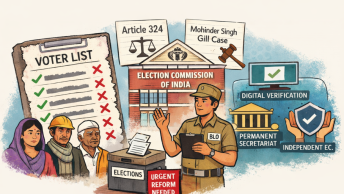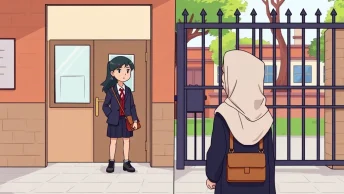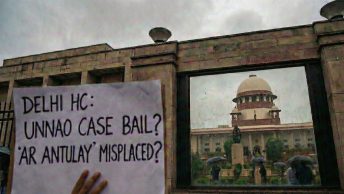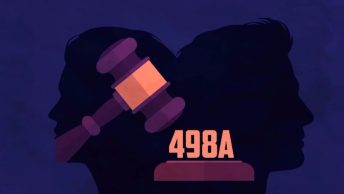[Ed Note: Over the next few days, we shall be discussing Danish Sheikh’s new book, Love and Reparation: A Theatrical Response to the Section 377 Litigation in India (Seagull Books, 2021). This is the third review of the book by Kriti Sharma. The introductory post by Douglas McDonald and other reviews can be found here.]
The book Love and Reparation encompasses two plays- Contempt and Pride written by Danish Sheikh. Through these plays, he reflects on the lives of sexual and gender minorities who have lived as unconvicted felons on account of Section 377 of the Indian Penal Code and their internal and external battles while trying to make sense of love and/or law; even as love and law remain ‘inseparably entwined’ due to the criminalization of ‘homosexuality’ for 158 years and non-recognition of right to love for same-sex relationships. The playwright borrows richly from his own life experiences and insights as a litigator and a member of the community involved in the constitutional challenge of Section 377 at the Supreme Court of India; the litigation that also sets as the framework for the plays.
The first play, Contempt situates Plato’s The Symposium, a fictional Greek text where intellectuals converse on Eros (God of Love), in a modern context and here the ordinary queer persons get to deliberate on love, life, and law. The setting is that of a courtroom and scenes from the Supreme Court’s hearings in 2013 where the judges refused to decriminalize consensual same-sex relations are reimagined. The judicial reasoning is adeptly challenged primarily through narratives based on the lived experiences of the community. The reader is at once made aware of the violence of law as well as unregistered claims and acts of resistance that it silences and refuses to take cognizance of.
As the playwright has mentioned elsewhere, the phrase ‘carnal intercourse against the order of nature’ features twenty-one times in the Supreme Court judgment Suresh Koushal v. NAZ Foundation, and the phrase ‘carnal intercourse’ finds forty-one mentions. The play, by underlining the judicial emphasis on these words, brings into focus the myopic understanding of the judges who narrowed Section 377 down to certain physical acts and treated the subjugation of the queer community as incidental. The judges considered the lack of prosecutions under Section 377 as a sign of minimal infraction on the community when instead it more accurately depicts the accomplishment of the legislative intent behind Section 377 i.e., to ensure persecution but also censure any direct registration of same-sex relationships which was regarded as a ‘revolting subject’. Throughout the last century, mere discussions on same-sex relations have been penalized as obscene, even though writers were mostly describing same-sex love in homophobic tones as a perversity, venereal disease, and one that is a result of spousal neglect or entrapment. Such is the abhorrence for the term that even in rare cases of crimes of passion between same-sex couples leading to culpable homicide, entire criminal trials have been conducted concealing their sexual identities (Vanita et al: 2000). In fact, the same year as this judicial pronouncement, as a judicial clerk at the Delhi High Court, I came across a case where the lower court proceedings did not even acknowledge the evidence that the cause for culpable homicide was the sexual orientation of the deceased. Thus, it is ironic that the judges sought clear documentation that the queer community exists. It is precisely to undo the erasure that, post the unsuccessful 2013 hearing at the Supreme Court, a new litigation strategy was adopted and numerous affidavits from members of the community were placed before the apex court to relay their claims and contestations – a tactic that played a pivotal role in the subsequent overturning of the decision in 2018. The effectiveness of the strategy is on display in the play where the playwright juxtaposes 2013 judicial pronouncement against accounts based on the affidavits and brings to light the psychological trauma induced by such invalidating ‘reasoning’.
During my field works, I had become aware of forms of the physical, sexual, economic, social, and emotional violence endured by LGBTQIA+ but Love and Reparation brought a deeper understanding of the damaging effect societal labels have as they ensure internalization of guilt.[1] A thoughtful choice in the play, Contempt is that the narratives are not defeatist and show fortitude and resilience to the hegemonic ideas. A scenario where a young female challenges a pseudo psychiatrist and finds the strength to stand up to her kin seeking to cure her sexuality is a relatable troupe. Swapna-Sucheta provides a humane backstory to news items that fill brief columns in the papers noting suicides by young girls who aren’t allowed a life together. Kokila’s account highlights sexual violations and police atrocities endured by the transgender community that is targeted due to their work engagements (begging or sex work) in public spaces. There is courtroom drama with clever repartees by the lawyer and a charming man chasing his own Socrates that provides for an enthralling climax. I have used this play for the courses I teach, ‘Law of Crimes’ and ‘Gender and Society’ and it is always a welcome change from the dry text of the law. Law school students are at a precarious age learning to question the conformist views and are exploring their own identities. Just a decade ago, coming out in law school was rare and difficult, but plays like Contempt aids discourses affording students a safe space to voice their experiences and find strength even after the debilitating 2013 judgment.
Fast forward, Pride takes the narrative to the world post Navtej Singh Johar v. Union of India (2018) where the Supreme Court held Section 377 to be unconstitutional to the extent it criminalizes consensual sexual conduct between adults of the same sex. The play is a thoughtful reflection on the journey and what to make of the ‘victory’, going forward. In human rights litigation, often it takes decades of behind-the-scenes collaborations, strategizing, mobilization at local, national, and international levels, and coming together of various stakeholders for the victory of David over Goliath. However, the judgments or the flurry of subsequent jurisprudential analysis do not detail the human cost and effort. For the stakeholders, the court is only one site of contestation but an important one, and post the litigation, there is a natural need for reflection on ways in which the glass remains half full or half empty. In this play, one trajectory follows five different stakeholders from the Section 377 litigation and provides us with glimpses of their internal struggles and gains from the litigation. It follows their conversations and celebrates their coming together, but also reveals the tensions and palpable differences- the caste-class divisions, the honest or dishonest motivations, and disagreements on future paths and possibilities. Ultimately, it is the nascent understanding of the law that seeks to uniformly address diverse communities that fall within an umbrella term– queer, differently abled, Adivasis; enforcing homogeneity when various sub-groups have different needs and expectations.
The second trajectory follows the life of A, the Socrates chasing lover from Contempt, who now finds himself sitting across a therapist (T). A learns to heal from the humiliations, insecurities, and constant need for external succor, that he endured because of a certain sense of shame brought on him by society and the law due to his sexual orientation. As J. Chandrachud had noted in Navtej Singh (supra) ‘discrimination against an individual based on sexual orientation is deeply offensive to the dignity and self-worth of the individual.’ A unravels and recognizes that instead of philosophizing love, the right understanding of it requires self-validation and self-love first and foremost, before reaching out for ‘love as nourishment’ for and from the others. The judgment remains the most powerful reminder for people like A, the litigants, and the stakeholders that they spoke up. The playwright reminds us that in the imperfect world one must carefully choose to carefully hold on to the good. The words of the judgment that brought forth emphasis on constitutional morality over popular morality, apologized for the historic injustice and sought to undo the discrimination against the community allow us to do just that. On a personal level, going along with A on his journey was therapeutic for me and would be for many who have been made to feel less than for not conforming to the gender norms. Love and Reparation truly speaks to us on how to expand our love and repair our wounds.
References:
Vanita, Ruth, and Saleem Kidwai. 2000. Same-sex love in India: readings from literature and history. New York: St. Martin’s Press.
[1] A work exploring similar theme is Inside Gayland written by lawyer Rajesh Talwar where the playwright explores the effects of social pressure on people’s own beliefs on what is considered normal or moral. The protagonist, a married Indian lawyer travels to Gayland, a planet where same-sex relationships are the norm and heterosexual affairs are outlawed. After his experiences, on return to earth, he is so ashamed that he is unable to sleep with his wife.
Kriti Sharma is an Assistant Professor at Jindal Global Law School, Sonipat and works on human rights issues, with specific focus on incarceration and policing policies that impact the marginalised communities.







Thank you for your sharing. I am worried that I lack creative ideas. It is your article that makes me full of hope. Thank you. But, I have a question, can you help me?